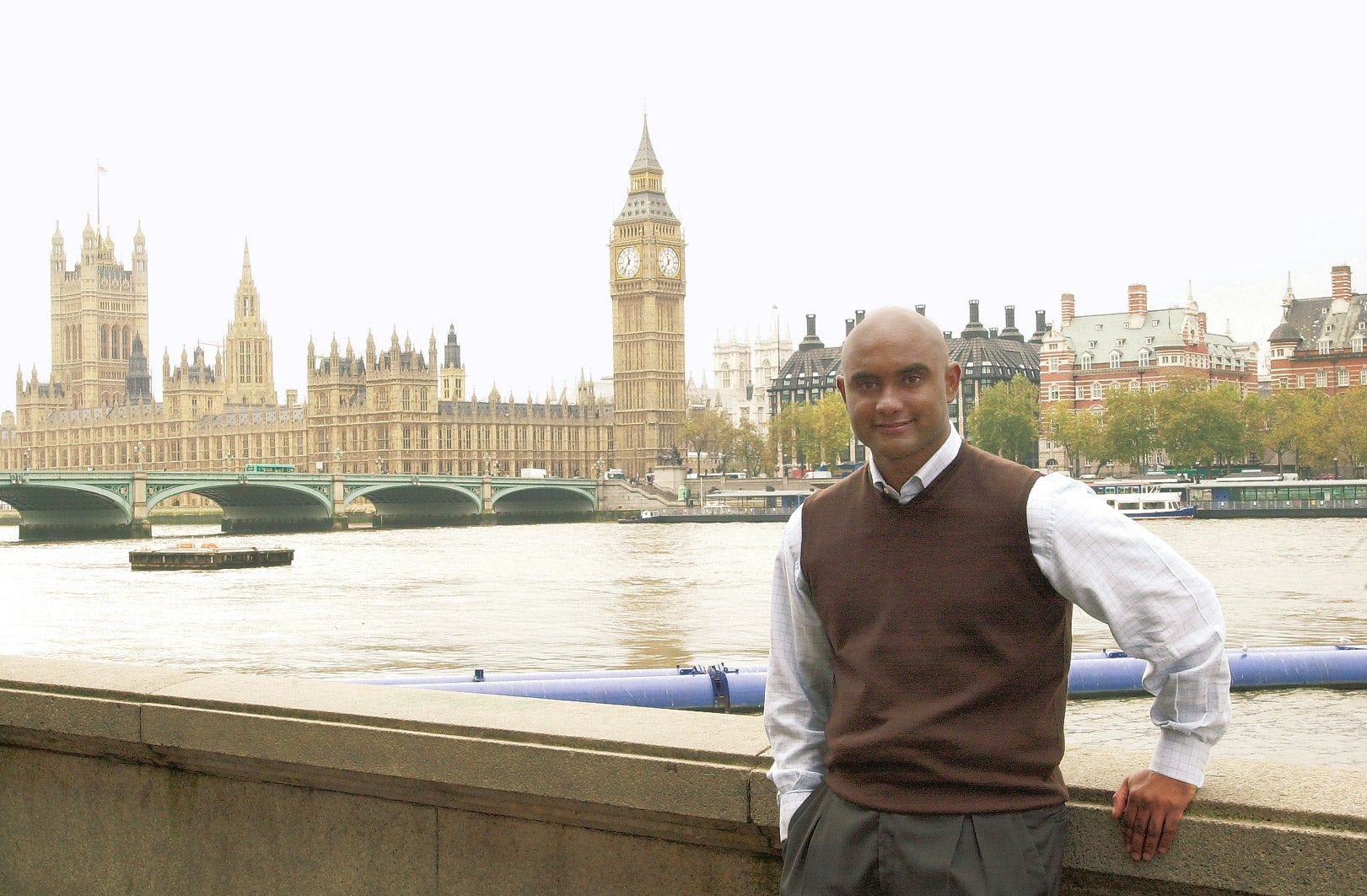A Harvard Law School student works a few weeks in a London firm over the summer and can’t get back to the United States in time for his fall semester. It doesn’t matter that he went to Phillips Academy or Harvard College or worked on Wall Street. What matters is the country that issued his passport.
3L Ahmed el-Gaili is a Sudanese citizen and one of the six HLS students, including five in the Graduate Program, who have found their lives disrupted by the heightened visa scrutiny since the attacks of Sept. 11. Visa applicants from predominantly Muslim and Arab countries have been subject to lengthy security clearances, hampering many of the school’s foreign students, according to Gail Hupper, assistant dean for the Graduate Program and International Legal Studies. A State Department spokesman said that, although visa procedures have now been improved, security concerns must take precedence.
When the visa approval process that usually took two to three days seemed as if it could stretch out for months, el-Gaili enrolled in law school in London in the fall. In January, he rejoined his class in Cambridge, and he plans to graduate this spring.
El-Gaili says he can see why “after the grave intelligence failure of September 11 . . . no one wants to take a chance or exercise discretion.” But he believes the security measures in place amount to ethnic profiling. And those being affected–predominantly liberal Arabs and Muslims–are the very people the United States should welcome: “They find something in common with America’s liberal ethos and go back and become forces of change in their societies,” he said.
Turki Al Thunayan, who attended the International Tax Program last year and expected to start the S.J.D. program in the fall, found that his visit home to Riyadh, Saudi Arabia, lasted months longer than he expected because of visa delays. Now that he and his wife and daughter are back in Cambridge, they will not be going home anytime soon: He doesn’t want to risk interrupting his studies again. And once he does get his degree, it seems unlikely he’ll be able to stay, although he’d imagined himself working in an international organization in D.C. or New York for a few years.
El-Gaili too says that this experience has made him rethink his future. His long-term goal is to return to the Sudan, but he’s been living in the United States for years and he’d hoped to practice law here as well. Now he is much more likely to go to London. “I’m realizing that, both professionally and personally, it will be very hard to work in the U.S. with these kinds of restrictions,” he said.
